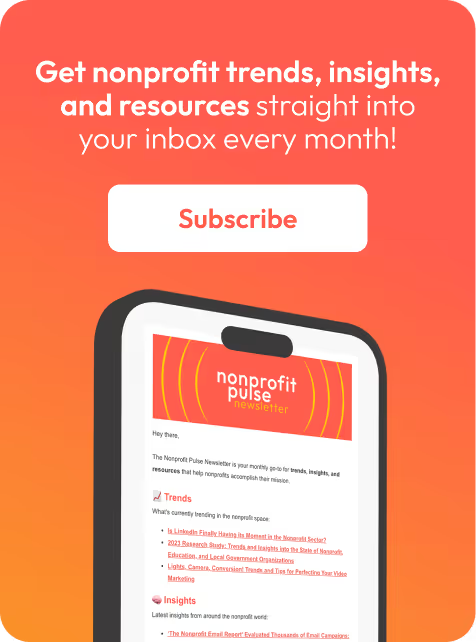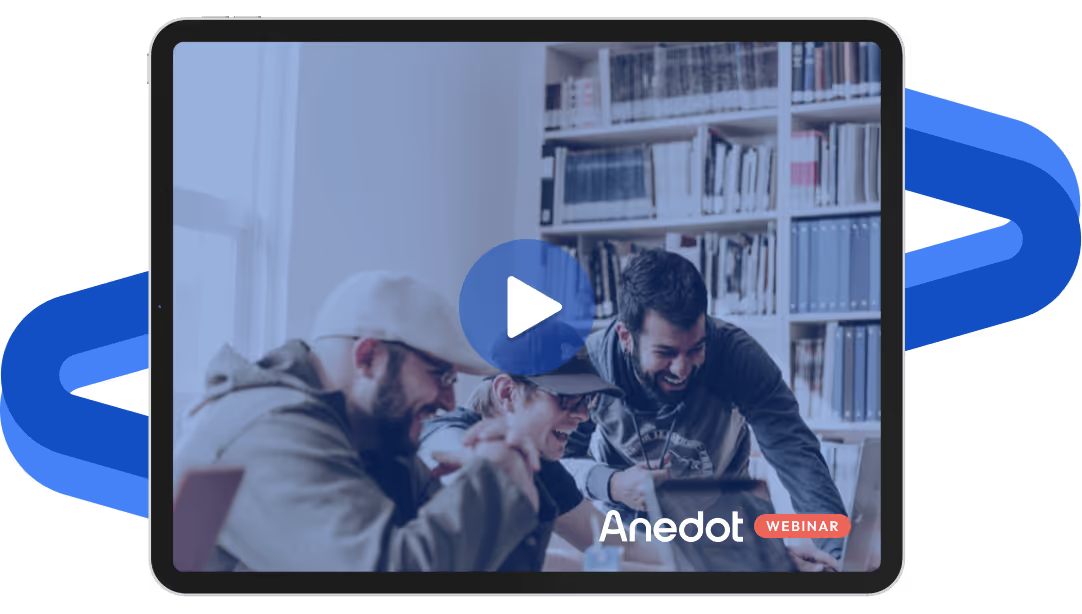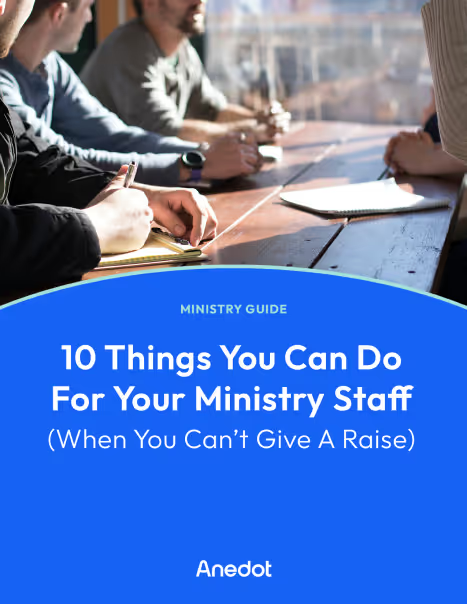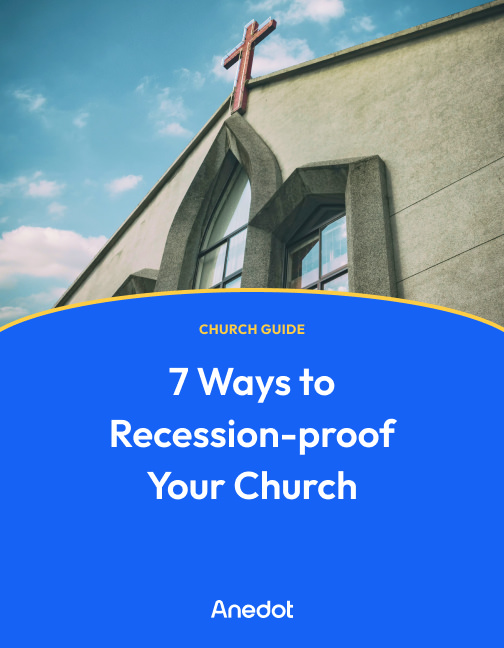Podcast episode transcript ↓
Josh:
Welcome to Big Ideas For Every Org. We help leaders discover powerful, big ideas that increase organizational impact.
I'm Josh. And today, we're joined by Doug Baker.
Doug is the Chancellor's Chief of Staff at Reformed Theological Seminary, one of the largest evangelical seminaries in the world with eight campuses across the United States and three international campuses.
Today, we're talking about rediscovering the value of an effective meeting. Meetings over the past two years have taken quite a beating.
With COVID and online meetings and work from home, people are burned out. And yet, meetings still need to happen. Effective meetings need to happen.
And so today, we're talking about rediscovering that value of an effective meeting with Doug Baker. So Doug, thanks for joining us.
Douglas:
Thank you, Josh. Glad to be here.
Josh:
So before we jump in to the topic, tell us a bit about yourself and your organization.
Douglas:
Well, I've had a bit of a varied career. I've been in government, I've been in education, I've been in ministry, I've been in various areas of service across these various disciplines.
And even spanning things like development, communications, finance, budgeting.
But RTS is a seminary. Therefore, we train pastors and church leaders to serve the Church of Christ across eight states, here in the United States and even three international communities.
Signs of a bad meeting

Josh:
That's great.
So today, we're talking about rediscovering the value of an effective meeting. But before we talk about the solution, I just want us to talk about the problem associated with not having effective meetings.
So can you tell us more about the problems that you've seen by not having effective meetings?
Douglas:
I mean, who among us has not sat in a very, very bad meeting?
There are always those memories that we can bring forward in our minds to just remind us just how bad a meeting could be and can be. Therefore, there's kind of been an aversion to even having meetings in our day.
And especially post COVID, it's been kind of an anomaly that people want to like, I don't even want to have a meeting.
And so coupled with that reality and with the memory of bad meetings, I found, and what I saw that was that most people really didn't want to have a meeting.
And when they had a meeting, it was pretty much a bad meeting.
It was not structured. It was not framed. There was no clear agenda, no action steps at the end.
No one knew what to do, when to do it, how to measure it. And then when we came together, it seemed like even perpetuating a bad idea.
So if the meeting wasn't gaining clarity as a result of its agenda, I really realized at the outset that without some real attention to how to do a good meeting, there was not going to be any progress forward in ways where we all could feel we're actually taking ground together.
What is an effective meeting?

Josh:
Yeah, absolutely. And I think it's a universal topic, right? We've all sat in bad meetings.
We've been on teams that were marked by bad meetings. We've worked for leaders or with leaders who really didn't know how to run an effective meeting.
And so, yeah, the pain is universal.
So would you unpack for us how you discovered what an effective meeting is and then how you implemented it?
Douglas:
I first realized people did not want to come to meetings in the organization.
And when they did, they didn't like it. So most of them avoided it. And in talking with them and asking them, what did you think of that meeting?
How did that go? What could we do better? I listened well to their responses.
And their responses clued me in to the real heart of the problem. And the real heart of the problem was not just scheduling the meeting, but preparing for the meeting.
Josh:
Hmm. Yeah. So how did you go about implementing this kind of new format of meetings in your organization?
Douglas:
Usually a meeting no longer goes on the calendar until we have a defined purpose for the meeting, and usually a defined outcome.
We don't want to prescript the meeting in a way that's a mere formality.
We actually want to do work together. So it's usually about three or four days before the meeting takes place, I'm in conversations with participants who will be in the meeting.
And I ask them, what's going on? How is this, what are you finding in your research? What issues do you have as far as this project is going? What barriers do you have?
How can we help each other move past those? How can you be better resourced to be able to accomplish what you need to do?
So what I did was talk and listen to those closest to the problem that we were trying to solve, and they would speak in response in ways that would actually help generate the agenda for the meeting.
I would do that usually to every participant that was going to be in the meeting. And then the agenda would form somewhat organically from the fruit of those conversations.
The agenda therefore became the tool. It became the management tool that would help us stay on track with careful structured conversations that helped each person realize, okay, here's the problem. Here's my part of advancing toward the solution.
Josh:
Mm, that's good. That's good. Are there any resources that you would also recommend?
Douglas:
Well, one book that really helped me understand this area was Michael Beer's most recent book Fit to Compete, published by Harvard University Business Press. It's very, very good.
In that he talks about amorphous conversations or just boundary-less conversations, unstructured conversations are really unhelpful in trying to tackle a big problem.
And before, sometimes you even have a need to have a conversation to find out what the problem is.
Sometimes we're tackling problems that we think might exist. Someone else has no clue, that's not even their opinion that that problem exists.
There has to be a consensus formed around what problem we're trying to solve. And usually those are done through careful, confidential, structured conversations.
As we move toward the formality of meetings, and I don't want to be scary about the formality of meetings.
Meetings are formal affairs. They should have an agenda. They should have a process. They should have participants. People should know what's going on. They should be informed.
But I've really found help in Michael Beer's book to help me as a person that does a lot of meetings, that leads a lot of meetings across various sectors of the institution or enterprise, to make sure that our project focus remains aimed toward the right target and that each participant in the meeting feels as if they are personally connected and vital to the success of solving that problem.
If I failed in that, in any part of that, it's usually my fault because I have not structured that meeting in a way, and prepared for that meeting with them with good data, with preparation and good framing that will result in a good outcome and measured progress.
So Michael Beer's book has really helped me be able to understand that better and to use that process here in our work.
Change the culture around meetings

Josh:
Yeah, so changing culture is a challenge in any organization.
You know, things like we've always done it this way, or this is how we do it, come up often in conversations with leaders.
So just tell me what challenges did you face in implementing this change in how you do meetings, and then how did you overcome those challenges?
Douglas:
Bill Schaninger at McKinsey said something on a podcast that I heard right in the middle of COVID.
And he said things that were on a 10 year trajectory of change, in other words, things would change we knew pretty sizably in 10 years, changed in 90 days as a result of COVID.
And it just reshuffled the deck. It changed everything about almost everything, about what business is doing. How do we do this? How do we understand this?
And nowhere was that more apparent than in education. And it really created a problem because you could no longer meet together.
You could no longer have physical assemblies of classes.
And what this has resulted in is that it has now restored not only the focus of using technology for a greater good, but it also reenergized the purpose of the seminary in serving the church in a way that brought together people in real presence, residential real life, life on life formation.
So in some ways the pandemic helped us already strengthen what we believed, but also it helped change our culture to give us more focus.
And before that crisis, I would say the seminary had good focus.
But coming out of strategic planning time, coming out of a strategic initiative, it was very, very helpful to have those strategic conversations brought about by good and sound meetings. It took some time. It wasn't immediate.
The first few meetings kind of felt clunky. They almost seemed a bit perfunctory, like what do I do? What am I saying? What's going on here?
But as people gained a bit more experience in how to do that and what to do and they felt comfortable in the structure, they felt comfortable speaking into these areas, they were informed, they were ready to talk.
They were prepared. It really began to feel right. They sensed that, hey, I want to come to this meeting.
And I had one person after one task force meeting we were doing on an initiative coming out of the strategic plan said, boy, meetings now just go so fast.
I couldn't believe where the time went.
We were through before I thought we were started. And that's because, I knew when he said that, I was like, okay, we're on the right track.
Because we're able to do things, not just more efficiently, although we're doing that.
But it's their participation through our cumulative preparation.
And it fell to me, as the leader of that meeting, to make sure that we were doing work that mattered in a way that they felt involved, they felt consulted, they felt heard, they felt prepared and they were able to tell, okay, yeah, I've actually succeeded here. I've done this.
Yes. I did this, it wasn't just up in the air. They were able to come out of a meeting better, stronger, and more equipped with greater clarity for the next day until we take account again later or until the project is finished.
How to rediscover the value of an effective meeting

Josh:
That's awesome. That's awesome.
And that really gets at what we're talking about today, which is rediscovering the value of an effective meeting.
I think all of us at one time may have had a positive experiences with meetings where it felt like what you said, that people were accomplishing things. They knew they were accomplishing them.
They knew they were hitting the goals, the targets. And then things happen. Leaders change, there's change in the organization.
COVID changed a lot, right? I mean, Zoom kind of completely changed the meeting landscape and all of the nuances and expectations there.
And so today we're talking about rediscovering the value of an effective meeting.
Doug, what would you say to those who are on the fence or even just have some concerns about implementing an effective meeting agenda?
Douglas:
Never, ever underestimate the power of a good meeting.
No matter your past experience, no matter what may be your present experience, anything like that.
If you are a leader in charge of leading others in meetings, if you've got to have a meeting to get everyone on the same page, if you've got to have a meeting to make sure that you're advancing the ball, if you're moving the needle, all the phrases we use today.
If you're in that position, if you're in that chair to be able to do that, never underestimate the power of preparation, of framing that meeting, of listening to the participants beforehand, and then looking toward the meeting as an exciting venture together where you're not just pooling ignorance, or you're not just making mere speculations about everything that doesn't matter, but you're prepared.
You're ready. And you're actually taking ground together. I found that a good meeting has more power for team building than almost anything I could ever do.
A bad meeting can really trounce morale. But a good meeting can keep that team, and indeed your entire enterprise, moving forward at a clip that you can say, hey, we're making a difference.
We're actually taking some ground. And bad meetings will do just the opposite.
So never underestimate the power of preparation for a good tight meeting.
Closing thoughts

Josh:
That is so true. So true.
And just to show my cards, I am team meeting. I love a good meeting.
I believe that's where a lot of the magic happens of teamwork. But there's just so many bad meetings out there that it gives meetings a bad name.
And I hope others just listening to you Doug can take that initiative to just rediscover what an effective meeting looks like and what it can do for your organization.
Doug, where can we learn more about Reformed Theological Seminary?
Douglas:
Your first stop should be our website at rts.edu.
There you're going to find all the information about our campuses, about our chancellor, about our faculty.
We welcome you to visit that. It is a wonderful resource for your needs. We also have a new app that we've released. You could find it in the app store or wherever you get your apps.
It's a wonderful resource that we've produced with thousands of free resources for you and resources to you and your church, school, anything that you might have there for you.
Josh:
Thanks so much, Doug, for coming on the podcast today.
Douglas:
Thank you, Josh. It's been an honor to be with you today.
Josh:
Hey, thanks for listening. If you enjoyed this episode, please share it with others or leave us a rating and review.
To view show notes and resources mentioned in this episode, visit anedot.com/bigideas. Again, that's A-N-E-D-O-T.com/bigideas. We'll see you next time.
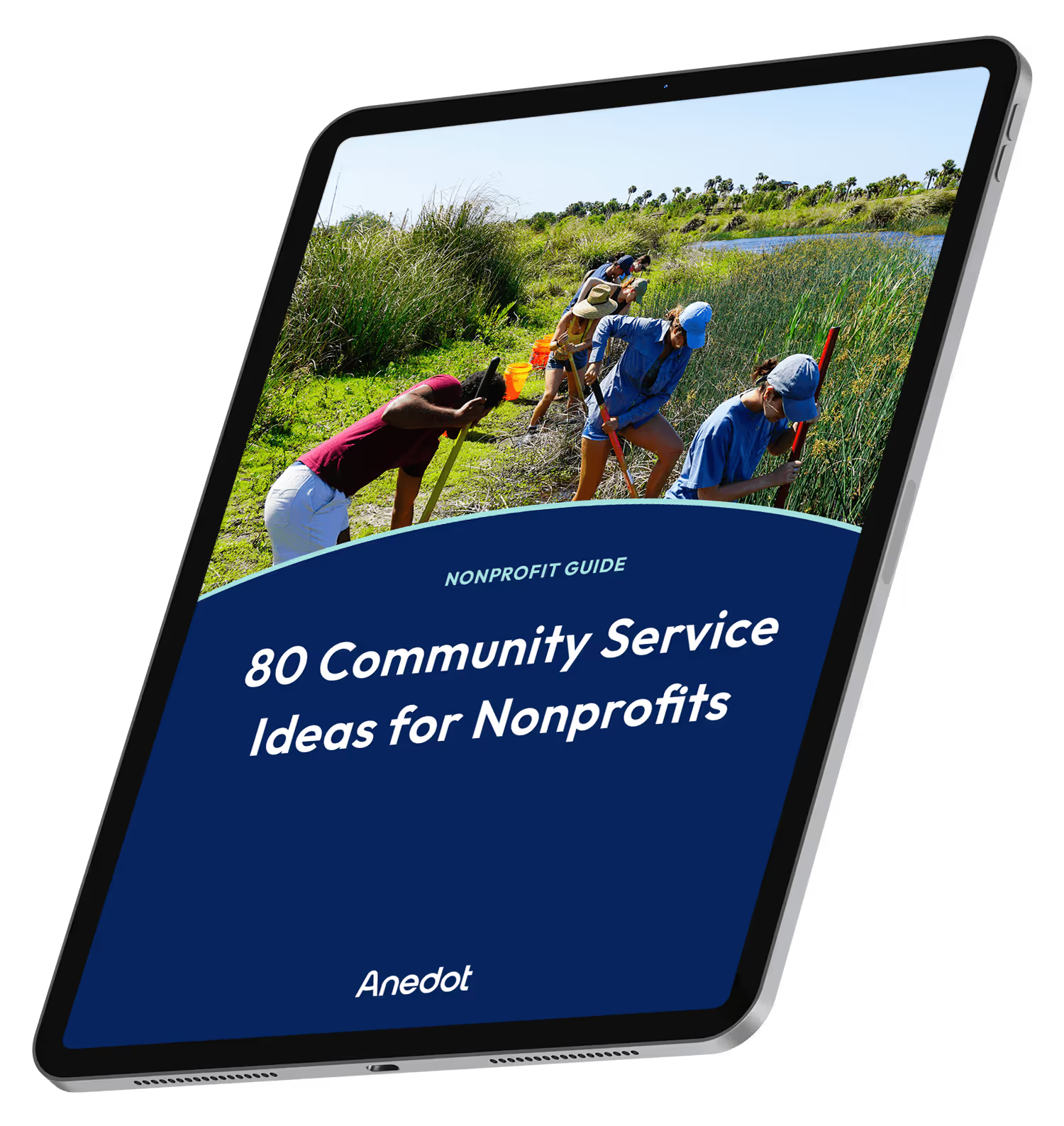
80 Community Service Ideas for Nonprofits

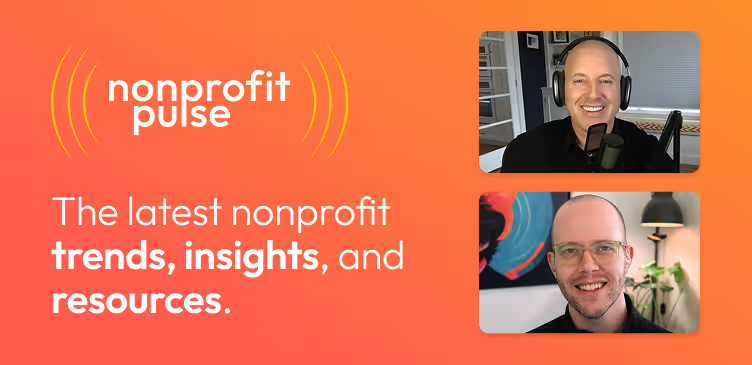
Show notes:
- Anedot Big Ideas Podcast
- Reformed Theological Seminary
- Michael Beer's Book: Fit to Compete
- The McKinsey Podcast: The Search For Purpose at Work





